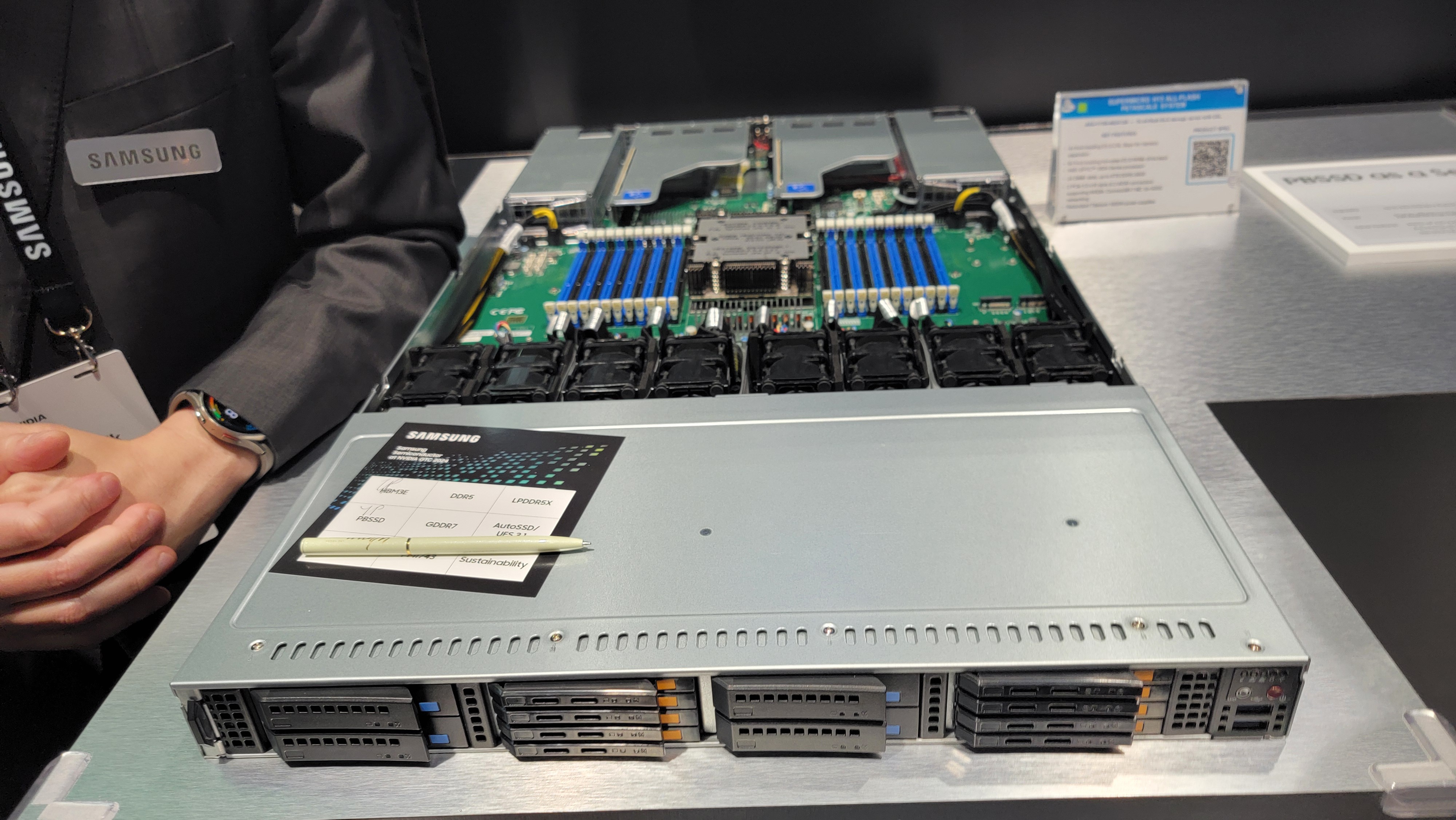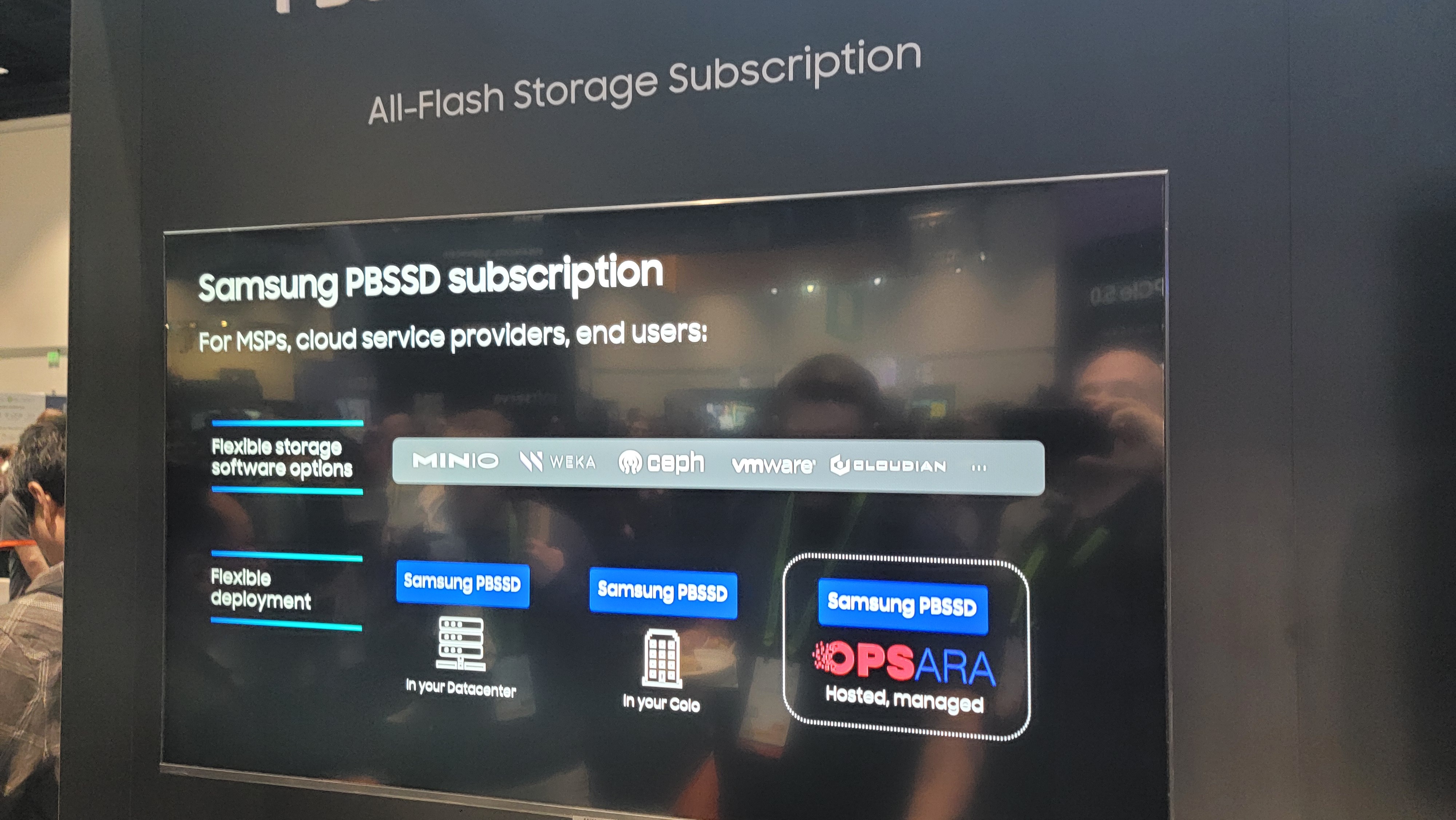Samsung details petabyte SSD subscription service, uses custom-built servers
It's not quite what we expected.
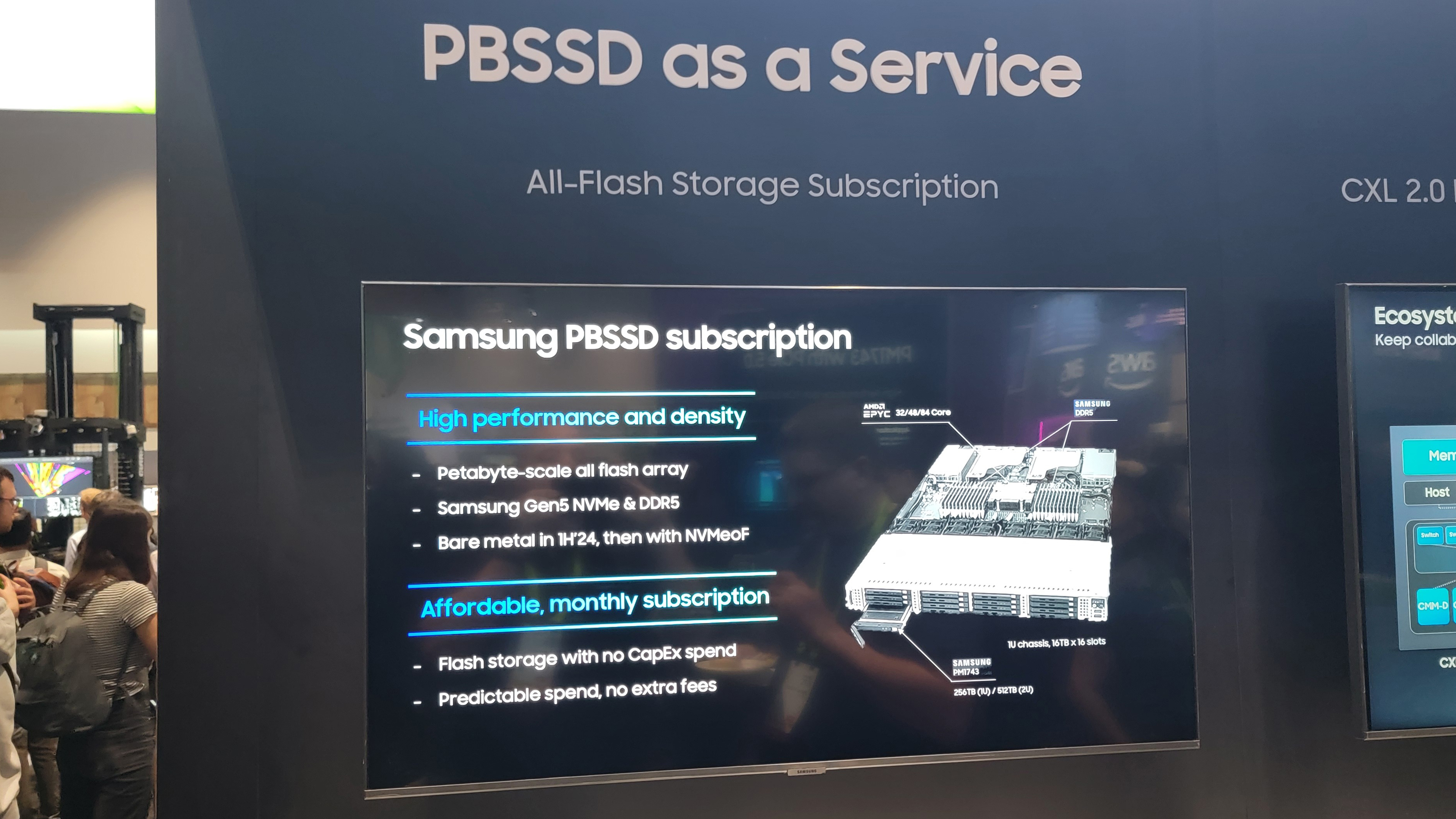
Get Tom's Hardware's best news and in-depth reviews, straight to your inbox.
You are now subscribed
Your newsletter sign-up was successful
Reports about Samsung prepping a high-capacity SSD subscription storage service made quite a splash earlier this week. Samsung showcased its PBSSD as a Service solution at Nvidia-hosted GPU Technology Conference (GTC 2024) and we were able to check it out and learn more about the service. indeed we are talking about a solution potentially enabling petabytes of all-flash storage. But at the same time, this is not quite what we expected based on the report.
Despite the name, PBSSD is not a petabyte-scale solid-state drive (Samsung's highest-capacity drive can store circa 240 TB), but rather a 'petascale' storage system that can scale-out all-flash storage capacity to petabytes. Samsung demonstrated Supermicro's all-flash storage system at GTC as an example of a 'petascale' machine. Supermicro's server is based on AMD's EPYC 9004-series processor and can accommodate 16 E3.S NVMe drives with a PCIe 5.0 x4 interface for added performance.
Samsung has a Petascale server with 16 15.36 TB SSDs, so for now the whole 1U unit can only pack up to 245.76 TB of 3D NAND storage (which is pretty far from a petabyte), so four of such units will be needed to store a petabyte of data. In addition, Samsung also demonstrated Supermicro's H13 all-flash petascale system with CXL support that can house eight E3.S SSDs and has four front-loading E3.S CXL bays for memory expansion.
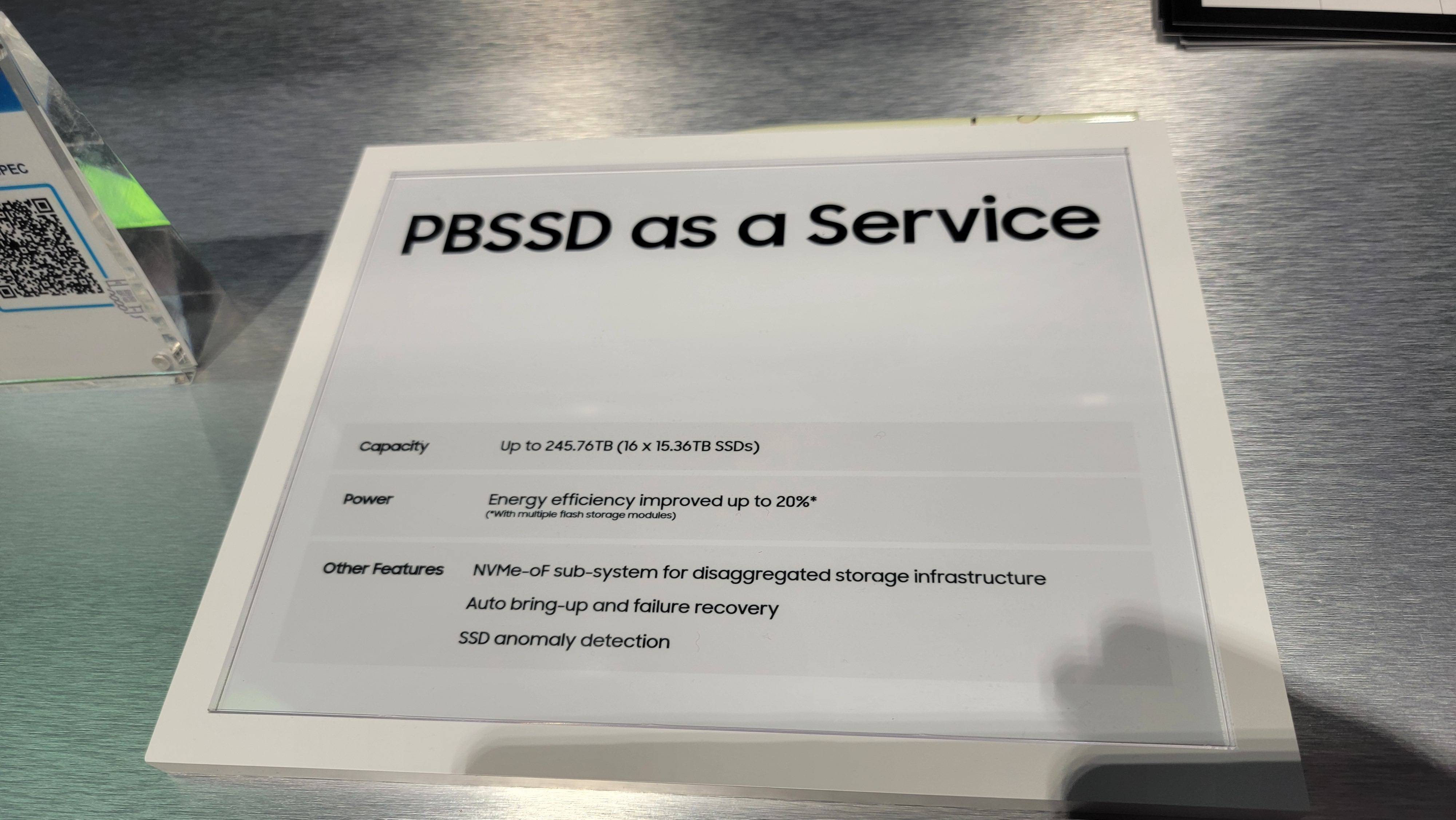
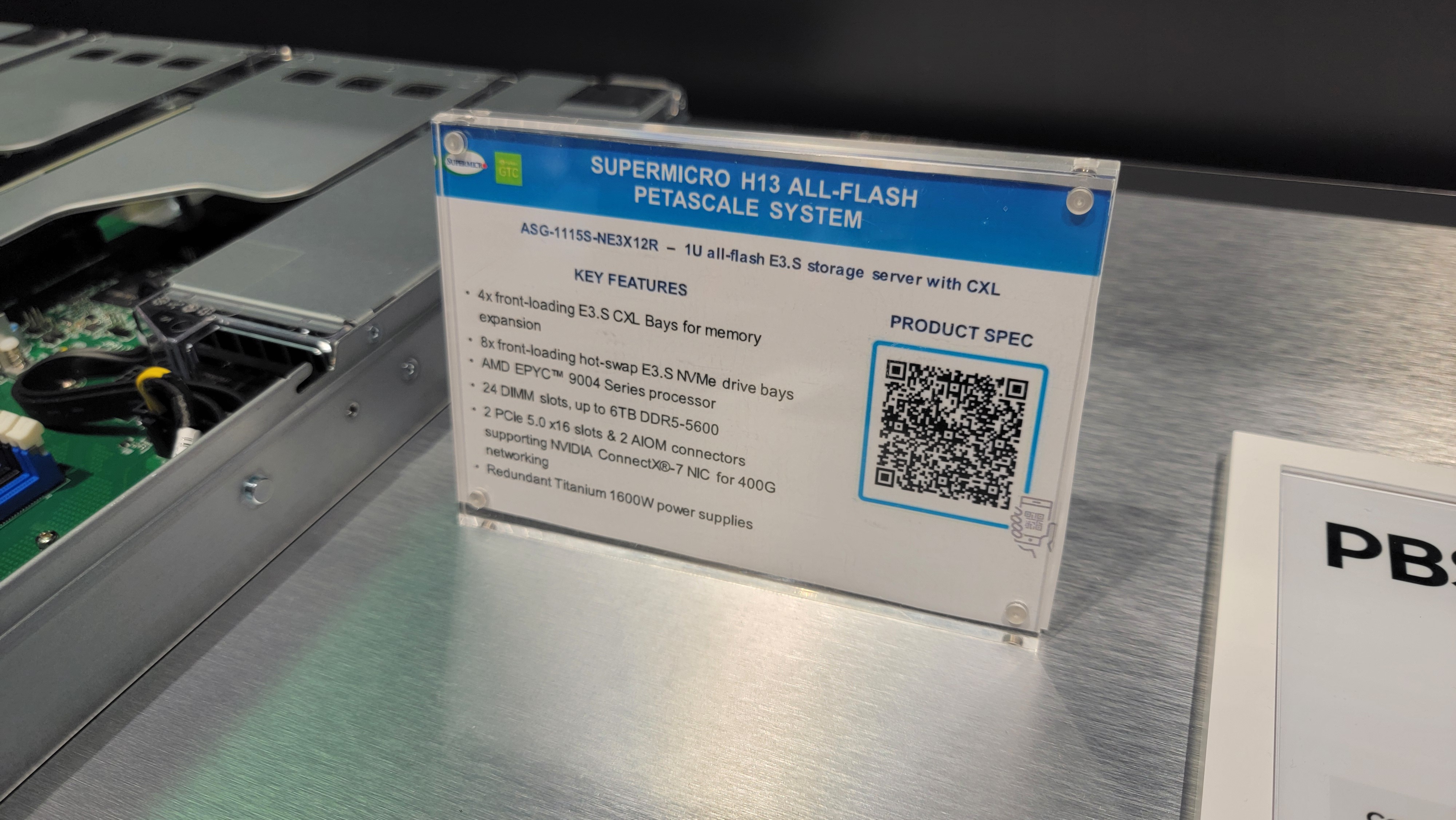
Supermicro claims its machine does not use PCIe Gen5 retimers, which are typically required for these connections. Possibly, Supermicro uses an ultra-low-loss printed circuit board for H13, which allows it to fit into PCIe specifications concerning signal loss.
Secondly, while Samsung's PBSSD as a Service solution is meant to be a service, it is not exactly meant to compete against established storage service providers, such as AWS, Google, or Microsoft Azure. Samsung positions its PBSSD product as a solution for managed service providers (MSPs), cloud service providers, and end-users with their own datacenters or with their racks in colocated datacenters. The company will deliver hardware at a monthly fee, enabling Samsung's clients to offer affordable high-performance storage services to various companies.
What will differentiate Samsung's PBSSD as a Service solution from other 1U all-flash-array servers is that the South Korean company promises to provide maintenance and security to end users and some colocations, though this will probably depend on where the particular hardware is installed. MSPs would probably like to manage and maintain everything themselves.
PBSSD does not leverage Samsung's Flexible Data Placement (FDP) method designed to enhance data placement to ensure greater predictability and performance in hyperscale workloads. Without FDP, PBSSD may not be the most intresting solution for hyperscale CSPs, who might prefer to build their own servers using Samsung's drives.
Get Tom's Hardware's best news and in-depth reviews, straight to your inbox.
Samsung expects to deliver the first PBSSD as a Service machines in the first half of 2024. Over time, these servers will gain NVMeoF support, but the company does not disclose when it is set to be ready to ship them.

Anton Shilov is a contributing writer at Tom’s Hardware. Over the past couple of decades, he has covered everything from CPUs and GPUs to supercomputers and from modern process technologies and latest fab tools to high-tech industry trends.
- Paul AlcornEditor-in-Chief
-
USAFRet Reply
"...and will be available to service providers"vanadiel007 said:And the price is?
This is not for thee and me, regular consumers.
